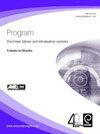Answer selection and expert finding in community question answering services: A question answering promoter
Q Social Sciences
Program-Electronic Library and Information Systems
Pub Date : 2017-03-22
DOI:10.1108/PROG-01-2015-0008
引用次数: 16
Abstract
Purpose Community question answering (CQA) websites provide an open and free way to share knowledge about general topics on the internet. However, inquirers may not obtain useful answers and those who are qualified to provide answers may also miss opportunities to share their expertise without any notice. To address this problem, the purpose of this paper is to provide the means for inquirers to access archived answers and to identify effective subject matter experts for target questions. Design/methodology/approach This paper presents a question answering promoter, called QAP, for the CQA services. The proposed QAP facilitates the use of filtered archived answers regarded as explicit knowledge and recommended experts regarded as sources of implicit knowledge for the given target questions. Findings The experimental results indicate that QAP can leverage knowledge sharing by refining archived answers upon creditability and distributing raised questions to qualified potential experts. Research limitations/implications This proposed method is designed for the traditional Chinese corpus. Originality/value This paper proposed an integrated framework of answer selection and expert finding uses the bottom-up multipath evaluation algorithm, an underlying voting model, the agglomerative hierarchical clustering technique and feature approaches of answer trustworthiness measuring, identification of satisfied learners and credibility of repliers. The experiments using the corpus crawled from Yahoo! Knowledge Plus under designed scenarios are conducted and results are shown in fine details.社区问答服务中的答案选择与专家寻找:一个问答推动者
社区问答(CQA)网站提供了一种开放和免费的方式来分享关于互联网上一般话题的知识。然而,询问者可能无法获得有用的答案,而那些有资格提供答案的人也可能在没有任何通知的情况下失去分享其专业知识的机会。为了解决这个问题,本文的目的是为询问者提供访问存档答案的方法,并为目标问题确定有效的主题专家。本文提出了一个用于CQA服务的问答启动器,称为QAP。对于给定的目标问题,所提出的QAP促进了过滤存档答案作为显式知识和推荐专家作为隐式知识来源的使用。实验结果表明,QAP可以根据可信度对存档答案进行细化,并将提出的问题分配给合格的潜在专家,从而利用知识共享。本文提出的方法是针对传统汉语语料库设计的。本文采用自底向上的多路径评价算法、底层投票模型、聚类层次聚类技术以及答案可信度测量、满意学习者识别和回复者可信度特征方法,提出了答案选择和专家发现的集成框架。实验使用的语料库是从Yahoo!在设计的场景下进行Knowledge Plus,并详细显示结果。
本文章由计算机程序翻译,如有差异,请以英文原文为准。
求助全文
约1分钟内获得全文
求助全文
来源期刊

Program-Electronic Library and Information Systems
工程技术-计算机:信息系统
CiteScore
1.30
自引率
0.00%
发文量
0
审稿时长
>12 weeks
期刊介绍:
■Automation of library and information services ■Storage and retrieval of all forms of electronic information ■Delivery of information to end users ■Database design and management ■Techniques for storing and distributing information ■Networking and communications technology ■The Internet ■User interface design ■Procurement of systems ■User training and support ■System evaluation
 求助内容:
求助内容: 应助结果提醒方式:
应助结果提醒方式:


